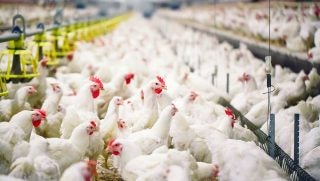There’s something to be said for the old adage “being able to put a face with a name.” New research suggests that in the scientific realm, including the biotech sector, scientists who post selfies in their Instagram foster trust and help change public stereotypes that scientists are competent but not warm. And with so much being done on social media these days, it seems only appropriate that scientists will use this kind of platform to better share what they do.
The paper titled, “Using selfies to challenge public stereotypes of scientists,” was published today in PLOS ONE. The work was a collaboration between researchers at Louisiana State, the University of Delaware, University of California-Berkeley, and the University of Toronto.
For an agriculture industry that is getting increasingly high-tech, yet is under near-constant assault from activists, finding a successful way to meet the public face-to-face, so to speak, is valuable.
The study builds on seminal work by Princeton University social psychologist Susan Fiske suggesting that scientists have earned Americans’ respect but not their trust. Trust depends on two perceived characteristics of an individual or social group: competence and warmth. Perceptions of competence involve the belief that members of a particular social group are intelligent and have the skills to achieve their goals. Perceptions of warmth involve the belief that the members of this group also have benevolent goals, or that they are friendly, altruistic, honest and share common values with people outside of their group. Together, perceptions of competence and warmth determine all group stereotypes, including stereotypes of scientists.
“Scientists are famously competent — people report we’re smart, curious, lab nerds — but they’re silent about scientists’ more human qualities,” Fiske said.
While perceptions of both the competence and the warmth of members of a social group are important in determining trust and even action, it turns out that perceived warmth is more important. And, as Fiske showed in a study published in 2014 in Proceedings of the National Academy of Sciences, Americans see scientists as competent but only as moderately warm. Scientists’ perceived warmth is on par with that of retail workers, bus drivers and construction workers but far below that of doctors, nurses and teachers.
The researchers of the new PLOS ONE study launched the investigation into perceptions of scientist Instagrammers after being struck with the idea that the competence versus warmth stereotype of scientists may not be an insurmountable challenge given the power of social media to bring scientists and nonscientists together.
“Social media channels, like Instagram, provide an exciting opportunity for scientists to improve their public image,” said co-author Becky Carmichael, LSU Communication across the Curriculum science coordinator. “We wondered whether seeing the faces of friendly, honest scientists sharing glimpses of their everyday work in the science lab or field could help change the problematic stereotypes that scientists are competent but not warm. Instagram is also a place where people with different backgrounds and interests can come together and even get to know each other via common hashtags. K-12 teachers are using social media in the classroom to introduce young students to scientists online. This multimedia-rich interaction could help broader audiences get to know the friendly, sociable, fun and relatable scientist.”
To explore this idea, the team launched a research project popularly referred to as ScientistsWhoSelfie, based on the hashtag the researchers introduced to raise awareness about the project in an online crowdfunding campaign that raised more than $10,000. A few dozen scientists around the globe helped to develop a series of images for the project.
The idea was to show research participants images published to one of four different “Scientists of Instagram” rotation-curation accounts and then to ask them questions about their perceptions of the scientists represented in these images as well as of scientists in general. Each participant was shown three types of images: a scientific setting or a piece of equipment such as a microscope, a bioreactor on the lab bench or a plant experiment set-up in a greenhouse with no humans in any of the images but with captions attributing the images to either male or female scientists by name; a smiling male scientist looking at the camera in the same scientific setting; or a smiling female scientist looking at the camera in the same scientific setting.
A total of 1,620 U.S.-representative participants recruited online viewed these images in an online survey. People who saw images including a scientist’s smiling face, or “scientist selfies,” evaluated the scientists in the images and scientists in general as significantly warmer than people who saw control images or images of scientific environments or equipment that did not include a person. This perception of scientists as warm was especially prominent among people who saw images featuring a female scientist’s face, as female scientists in selfies were evaluated as significantly warmer than male scientists in selfies or science-only images. There was also a slight increase in the perceived competence of female scientists in selfies. Competence cues such as lab coats and equipment likely played a role in preserving the perceived competence of scientists in selfies.
The team further found that seeing a series of female scientist selfies on Instagram significantly shifted gender-related science stereotypes, namely those that associate STEM fields with being male.


